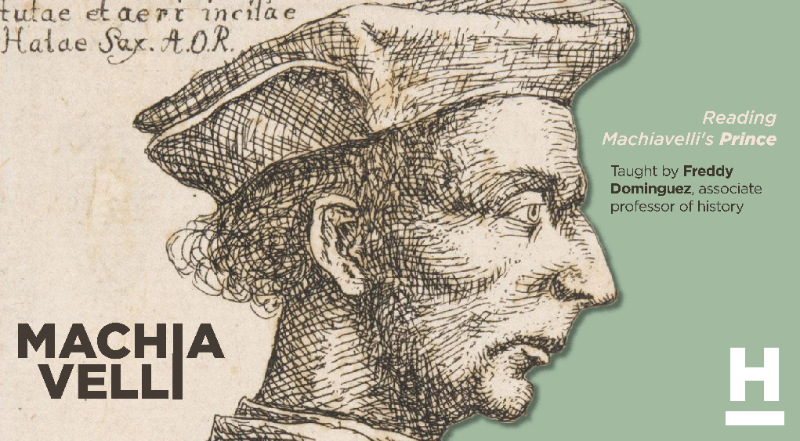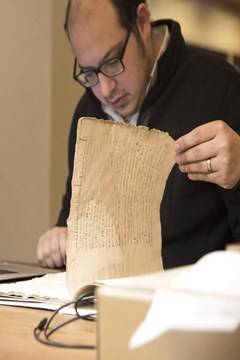Reading Machiavelli's Prince

Reading Machiavelli's Prince
HNRS 301H1-001
Freddy Dominguez
Spring 2025
M 10:45 a.m. - 12:00 p.m.
GEAR 129
Do the ends justify the means? We'll tackle this question and many more as explored in Niccolo Machiavelli's most influential book, The Prince. Written in Italy at the start of the sixteenth century, it discusses what the author sees as the (sinful) truths of human nature and the ways in which individuals can maintain power given that nature. Machiavelli could not have known it, but his little book ended up becoming one of the most controversial ones in the western tradition. While some contemporaries considered it immoral and even demonic, others at the time (grudgingly) saw value in it, especially if you cut out all the (perceived) sinful parts out. In modern times, leaders in politics and industry (and more) have taken the book as counsel for success. While we will try to understand The Prince in its historical context, we'll ask why his book elicits such strong positive and negative reactions, why people still read it for advice, and what that tells us about our own times. We might also ask ourselves: are we moderns destined to be what in Shakespeare’s times would have been called Machiavels?
About Freddy Dominguez
 Freddy Dominguez (B.A., Brown University 2004; M.A./PhD, Princeton University 2011) is a historian
of Early Modern Europe, with a focus on political culture, religion, and book history.
He is also interested in historiography and historical culture(s) from the Renaissance
through today.
Freddy Dominguez (B.A., Brown University 2004; M.A./PhD, Princeton University 2011) is a historian
of Early Modern Europe, with a focus on political culture, religion, and book history.
He is also interested in historiography and historical culture(s) from the Renaissance
through today.
His first book dealt with the wrtings of sixteenth century English Catholic exiles in continental Europe: Radicals in Exile: English Catholic Books during the Reign of Philip II (Pennsylvania State University Press, 2020). His second monograph, Bob Dylan in the Attic: The Artist as Historian (UMass Press, 2022), considers singer/songwriter through the lens of historical culture. His third monograph, under contract with Penn State Press, considers the political life of an early seventeenth century Spanish "missionary" to England: Luisa de Carvajal: The Politics of an Anglo-Spanish Life. Future book projects in progress include one about a sixteenth century "false saint", Maria da Visitacao, The Confessor and the Nun: A Story of Sanctity and Sin in Early Modern Portugal, and an intellectual/political history of sixteenth century Europe through a study of the Jesuit, Robert Persons: Robert Persons Writes the Counter-Reformation: Polemics and Ideas during the Wars of Religion.
Dominguez is writing and has written various articles and book reviews and has edited a collection of essays (with William Bulman): Political and Religious Practice in the Early Modern British World (Manchester University Press, 2022)
He is book review editor for the Sixteenth Century Journal.